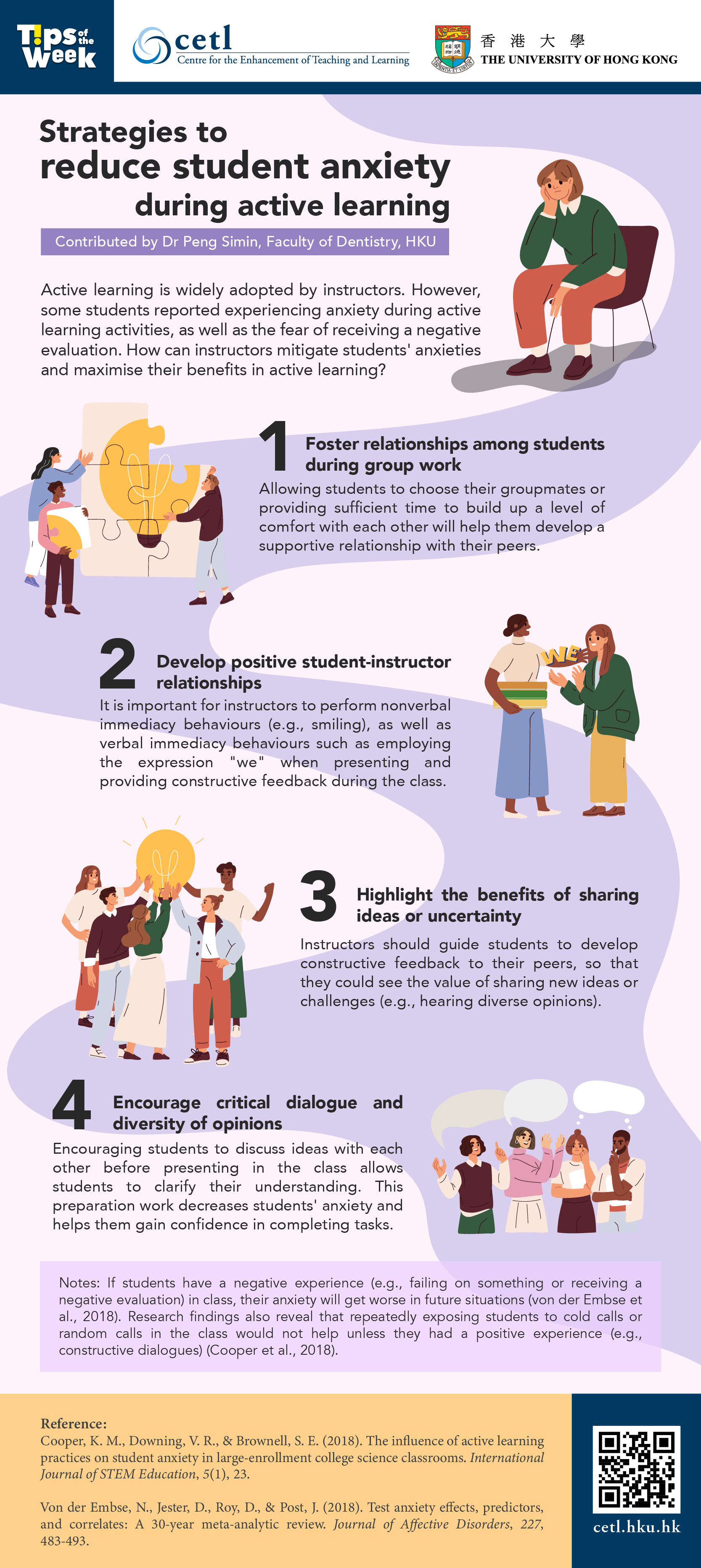
Contributed by Dr Peng Simin, Faculty of Dentistry, HKU
Active learning is widely adopted by instructors. However, some students reported experiencing anxiety during active learning activities, as well as the fear of receiving a negative evaluation. How can instructors mitigate students’ anxieties and maximise their benefits in active learning?
- Foster relationships among students during group work
Allowing students to choose their groupmates or providing sufficient time to build up a level of comfort with each other will help them develop a supportive relationship with their peers. - Develop positive student-instructor relationships
It is important for instructors to perform nonverbal immediacy behaviours (e.g., smiling), as well as verbal immediacy behaviours such as employing the expression “we” when presenting and providing constructive feedback during the class. - Highlight the benefits of sharing ideas or uncertainty
Instructors should guide students to develop constructive feedback to their peers, so that they could see the value of sharing new ideas or challenges (e.g., hearing diverse opinions). - Encourage critical dialogue and diversity of opinions
Encouraging students to discuss ideas with each other before presenting in the class allows students to clarify their understanding. This preparation work decreases students’ anxiety and helps them gain confidence in completing tasks.
Notes: If students have a negative experience (e.g., failing on something or receiving a negative evaluation) in class, their anxiety will get worse in future situations (von der Embse et al., 2018). Research findings also reveal that repeatedly exposing students to cold calls or random calls in the class would not help unless they had a positive experience (e.g., constructive dialogues) (Cooper et al., 2018).
References:
- Cooper, K. M., Downing, V. R., & Brownell, S. E. (2018). The influence of active learning practices on student anxiety in large-enrollment college science classrooms. International Journal of STEM Education, 5(1), 23.
- Von der Embse, N., Jester, D., Roy, D., & Post, J. (2018). Test anxiety effects, predictors, and correlates: A 30-year meta-analytic review. Journal of Affective Disorders, 227, 483-493.



